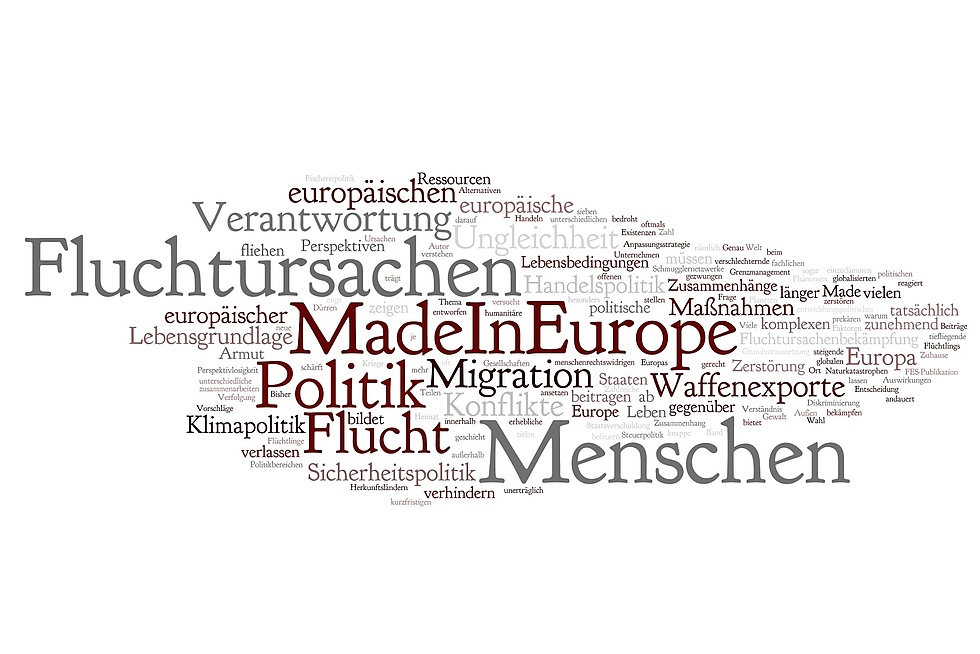Betrayed and Sold? Turkish and Greek Perspectives on the EU-Turkey Deal
Image: Syria - Refugees Trying to Flee to Turkey of Andreas H. Landl licensed under CC BY-NC 2.0
The EU-Turkey Dealhttp://www.consilium.europa.eu/en/press/press-releases/2016/03/18-eu-turkey-statement/went into effect one year ago, with the goal of reducing the number of refugees reaching Europe via Turkey and of fighting human traffickers who are profiting from their desperation. At first glance, it was a success. According to the EU Commission, the number of new arrivals from Turkey to the Greek islands went from an average of 1,700 per day in February 2016 to about 43 per day between December 2016 and February 2017. The number of those who died or went missing in the Aegean has also considerably decreased since the Deal was made.
However, the Deal is more than a little controversial. The fact that fewer refugees are arriving in the EU is also due to the closure of the Balkan route, which means that many people can no longer travel through Europe. According to aid organizations, the current humanitarian situation at closed refugee centers on the Greek islands (so-called “Hotspots”) is unsustainable, as planned deportations to Turkey as well as the relocations within the EU are hardly progressing. The promised visa liberalization for Turkish citizens has not yet been implemented, and the government in Ankara is increasing threats to terminate the agreement in order to put pressure on the EU and Greece. These rather mixed results raise the question of whether the Deal should be used as a blueprint for similar "deals" with North African states.
But how do Greece and Turkey, the countries most affected by the Deal, feel about it?
Nicole Katsioulis, Head of the FES-office in Athens, summarizes what the Deal means for Greece:
It’s true that far fewer people have been coming to Greece from Turkey since the Deal was implemented, but the planned deportations to Turkey and relocations within the EU are not happening fast enough. As a result, the Hotspots on the islands are overcrowded, and transfers to the mainland have been suspended. Riots have broken out at the island centers, tourism has dropped and local islanders are protesting – in short, the situation is critical.
NGOs like Amnesty International, Doctors Without Borders, the Greek Council for Refugees or the Greek Human Rights League actually refer to the Deal as the “Non-Deal”. According to them, the current EU refugee policy has failed and furthermore violates basic human rights. They add that thousands of refugees in Greece live in closed reception centers for months without knowing what was going to happen to them. And asylum procedures are criticized for being neither fair nor fast enough.
On the other hand, Greece needs more assistance in order to improve the situation. The country is depending on other EU member states being sanctioned or forced to provide financial compensation if they violate the relocation program by not accepting refugees. In addition, Greece is demanding more European support regarding asylum services: the European Asylum Support Office (EASO) should be better staffed, and EU partners should carry out their promise of sending officials to Greece.
The EU-Turkey Deal has not led to an improvement, but rather a deterioration, of EU-Greek relations. This has to do with the fact that Greece has become a kind of collecting tank for refugees. Since the Deal, very few people have been returned to Turkey, the relocation of refugees to other EU member states is proceeding much too slowly, and the Balkan route has been closed for a year. The EU-Turkey Deal has only made the situation in Greece much more acute.
Felix Schmidt, Head of the FES Office in Istanbul, outlines the Turkish view on the Deal:
In Turkey, the fact that the number of refugees who have drowned in the Aegean has drastically decreased is seen as the Deal's biggest success. But the overall impression is that the EU has betrayed the country and is not holding up its end of the Deal, while Turkey has completely implemented it.
At first the Deal seemed to be a sign of improving EU-Turkey relations, as well as a revival of accession negotiations. The promised visa liberalization for Turkish citizens, in particular, would have been a foreign policy success for the government and given people in Turkey the feeling of being accepted and appreciated by the EU.
These hopes have been crushed. The EU is refusing to grant visa liberalizations because it says that Turkey is not fulfilling certain criteria. The Turkish government does not accept this argument and accuses the EU of not fulfilling its obligations, such as being reluctant to provide promised financial assistance.
In the meantime, Turkey is using the refugee situation as leverage in order to exert pressure on the EU and also on Greece. Time and again, the country has openly threatened to revoke the Deal – such as when the EU refused to hand over alleged putschists that had fled to Greece.
Ultimately, Turkey is increasingly seeing itself as the country that does the “dirty work” for EU member states: it keeps refugees from migrating into Europe, yet does not receive anything sufficient in return.
Contact: Felix Schmidt in Turkey


